Rory Stewart
description: a British politician, diplomat, and writer who has served as a Member of Parliament and as Minister of State for International Development.
30 results
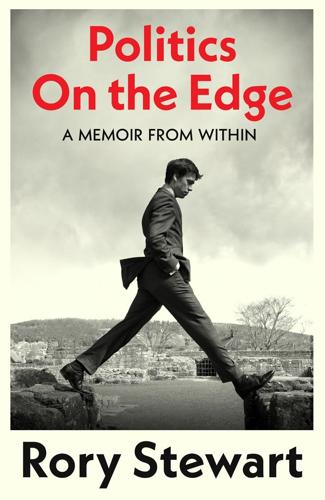
Politics on the Edge: The Instant #1 Sunday Times Bestseller From the Host of Hit Podcast the Rest Is Politics
by
Rory Stewart
Published 13 Sep 2023
My team brought in the press clippings the next morning. To my surprise the Telegraph, which had attacked me for nine years, had written, ‘Rory Stewart gave a speech that blew his Tory leadership rivals out of the water.’ Robert Peston, the ITV presenter, had tweeted ‘Rory Stewart electrified this tent. He delivered the most coherent and lyrical launch speech of any candidate. On this showing the Tories have found a proper star.’ James O’Brien, the radio presenter and journalist, had written, ‘For good or ill, Rory Stewart would absolutely annihilate Jeremy Corbyn in a general election.’ Generally, faced with this type of praise I felt queasy, both overvalued and misunderstood, guilty at having got away with something.
…
His 21-month 6,000-milewalk across Asia, including Afghanistan, is recorded in his New York Times bestseller, The Places in Between. His other books include Occupational Hazards, and The Marches. Also by Rory Stewart The Places In Between Occupational Hazards: My Time Governing in Iraq The Marches: Border Walks with My Father Rory Stewart * * * POLITICS ON THE EDGE A Memoir from Within Contents Author’s Note Prologue PART ONE 1 Suddenly Coming Alive 2 Gajumaru Trees 3 The Livestock Ring 4 The Empty Hall 5 One Nation PART TWO 6 District Commissioner for Cumbria 7 Team Player 8 Select Committee PART THREE 9 Red Box 10 Particulate Matter 11 Plenipotentiary Powers 12 2017 Election PART FOUR 13 ‘A Balliol man in Africa’ 14 The People’s Political Consultative Conference PART FIVE 15 Unlearning Helplessness 16 Barking at Drones 17 Backstop 18 Resignation 19 Loving Strict PART SIX 20 The Vanishing Middle 21 Secretary of State 22 Leadership 23 Standing Up 24 Pinocchio 25 Pro-rogue 26 Quaestor Dramatis Personae Glossary Acknowledgements Index To Shoshana Me debeo quid ego nunc interiora nostra et recondita consilia sermonesque arcanos eruam, ut repentinis nuntiis ad praesentia et inminentia pericula evocatus tuis consiliis conservatus sim, ut neque audacius experiri casus temere passa sis, et modestiora cogitanti fida receptacula pararis.
…
My stance was now the first item on the Six O’Clock News as well. ‘The fight has begun with one of the candidates accusing Boris Johnson of offering a damaging and dishonest Brexit plan. Rory Stewart said he wouldn’t serve.’ Dominic Raab and Matt Hancock had chosen the same day to announce their leadership bids. But their announcements were buried. Lizzie began to hear from colleagues that they blamed me for breaking their momentum. The next morning, the Daily Mail ran the headline: ‘Rory Stewart brands Boris Johnson a LIAR in thinly veiled Pinocchio tweet.’ The Sun said that the leadership race had exploded into life. Matt Hancock’s attempts to introduce his policies on the morning round were derailed by questions as to whether he would serve under Boris.
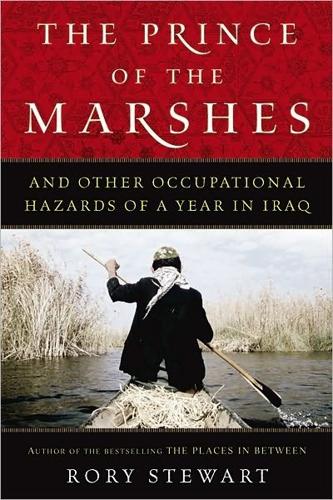
The Prince of the Marshes: And Other Occupational Hazards of a Year in Iraq
by
Rory Stewart
Published 1 Jan 2005
Assassination of Ayatollah al-Khoi, possibly orchestrated by Muqtada al-Sadr (Sadr III) END OF APRIL 2003—Full Coalition control over Amara MAY 2003—Establishment of Coalition Provisional Authority under Paul Bremer AUGUST 2003—UN headquarters bombed, assassination of SCIRI founder Ayatollah M. Bakr al-Hakim (Rory Stewart visits Baghdad) SEPTEMBER 2003—Rory Stewart to Iraq initially as acting governorate coordinator in Maysan NOVEMBER 2003—Molly Phee arrives as governorate coordinator in Maysan; Rory Stewart becomes her deputy MARCH 2004—Rory Stewart posted as senior adviser to Dhi Qar APRIL 2004—Release of transitional administrative law APRIL–SEPTEMBER 2004—Insurgency against Coalition under Muqtada al-Sadr (Sadr III) JUNE 28, 2004—Handover of sovereignty from CPA to interim Iraqi government JANUARY 30, 2005—Elections for transitional government and provincial councils DECEMBER 15, 2005—Election of constitutional parliament INTRODUCTION Res dura et regni novitas me talia cogunt/moliri.
…
Table of Contents Title Page Table of Contents Copyright Dedication Maps Foreword Dramatis Personae Timeline Introduction Capitalist-Imperialist-Crusader Waking Up Dead Mordor THE PRINCE OF THE MARSHES The British Camp Regeneration The General Civil Affairs Persia Ice Cream Baklava Pagoda The Supervisory Committee High Command DEATH OF A HERO Friday Prayers And Would Not Stay for an Answer Resolutions Blood Money Resignation Summit IRAQI PASTORAL Al-Mutanabi Street Rural Rides Deputy The Paths that Lead to Destruction Import Substitution Industrialization Jobs Mutiny Sheikhs Precautions The Islamic Call Sadrines Majority and Minority Poet Our Successors Departures Trust A New Chief Death by the Office Wall Credibility NASIRIYAH Arrivals Morning Meeting A Second Governor Sage of the Assembly Mudhif Ali Zeidi Police Echoes from the Frontiers Kidnapped Rewarding Friends Foreign Elements Return to the Green Zone The Rule of Law BESIEGED The Quick Reaction Force Kabul Reprise Final Days Leaders Last Days in Amara Handing Over Afterword Epilogue Acknowledgments About the Author Footnotes Copyright © 2006 by Rory Stewart Epilogue copyright © 2007 by Rory Stewart All rights reserved. No part of this publication may be reproduced or transmitted in any form or by any means, electronic or mechanical, including photocopy, recording, or any information storage and retrieval system, without permission in writing from the publisher. For information about permission to reproduce selections from this book, write to Permissions, Houghton Mifflin Harcourt Publishing Company, 215 Park Avenue South, New York, New York 10003.
…
For information about permission to reproduce selections from this book, write to Permissions, Houghton Mifflin Harcourt Publishing Company, 215 Park Avenue South, New York, New York 10003. www.hmhco.com The Library of Congress has cataloged the print edition as follows: Stewart, Rory. The prince of the marshes: and other occupational hazards of a year in Iraq/ Rory Stewart.—1st ed. p. cm. 1. Iraq—Description and travel. 2. Iraq—Social life and customs—20th century. 3. Stewart, Rory—Travel. 4. British—Iraq. I. Title. DS70.65.S74 2006 956.7044'31—dc22 2006006905 ISBN 978-0-15-101235-0 ISBN 978-0-15-603279-7 (pbk.) eISBN 978-0-15-603300-8 v2.0215 First Harvest edition 2007 To my father, A great man, a fierce ally, and most constant friend.
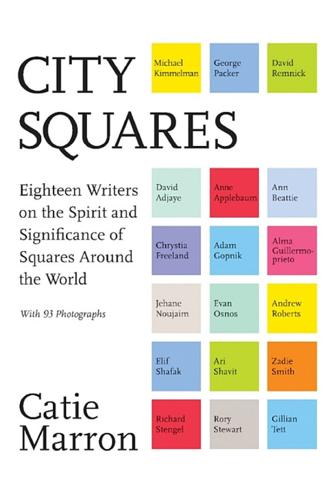
City Squares: Eighteen Writers on the Spirit and Significance of Squares Around the World
by
Catie Marron
Published 11 Apr 2016
Philip-Lorca diCorcia/Trunk Archive, Djemaa el-Fnaa, Marrakech DEDICATION For my family: Don, William, and Serena CONTENTS Dedication Introduction: Catie Marron PART ONE CULTURE: POWER OF THE PLACE Introduction: Michael Kimmelman Maidan-e-Pompa, Kabul: Resisting the Square Rory Stewart Place des Vosges, Paris: A Private Place Adam Gopnik Red Square, Moscow; Grand Market Square, Kraków: The Past Is Always Present Anne Applebaum Squares of Rome and Venice: The Shadow of Ideas: Circles and Squares Zadie Smith Djemaa el-Fnaa, Marrakech: Engaging with Complexity and Diversity David Adjaye PART TWO GEOPOLITICS: STRENGTH IN NUMBERS Introduction: David Remnick Tahrir Square, Cairo: Lost and Found in the Square Jehane Noujaim Rabin Square, Tel Aviv: So Empty, So Loud Ari Shavit Taksim Square, Istanbul: Byzantine, Then and Now Elif Shafak Tiananmen Square, Beijing: In Search of Heavenly Peace Evan Osnos Euromaidan, Kiev: A Place Becomes a Movement Chrystia Freeland PART THREE HISTORY: INFLUENCE ON HUMANITY Introduction: George Packer Grand Parade, Cape Town: A Speech for the Ages Richard Stengel Residential Squares, London: A Meander Through Splendor and Squalor Andrew Roberts Zócalo, Mexico City: On Sacred Ground Alma Guillermoprieto Harvard Square, Boston: A City Changes, Its Heart Endures Ann Beattie The Virtual Square: Hacker Square Gillian Tett Acknowledgments About the Authors Also by Catie Marron Credits Copyright About the Publisher MASSIMO VITALI Venezia San Marco INTRODUCTION Catie Marron UNTIL RECENTLY, I’D NEVER THOUGHT MUCH ABOUT CITY SQUARES.
…
When citizens wanted to convey their message to those in charge—in Euromaidan, Tahrir, Taksim, and Tiananmen squares, as well as many others—they flocked to their square. As David Remnick noted, “authoritarians don’t realize what a dangerous thing it is to have a city square.” Each writer was chosen with thought and care. Each writer has contributed his or her own special mix of innate talent, prodigious research, and local knowledge. Rory Stewart tells the story of a square in Kabul, which has come and gone several times over five centuries, due to both the local culture and, equally, the will of one individual, the latest iteration involving Rory himself in the leadership role. Ari Shavit describes the changes of central Tel Aviv’s Rabin Square, which began as a forum for rallies and assemblies, then became the symbolic site of a national tragedy, and is now an almost empty void, even as hectic urban life bustles with energy around its edges.
…
We played game after game, vainly hoping to slow time. The perfect square, it turns out, is also a state of mind. MATTHEW PILLSBURY Fausto in Washington Square Park, Washington Square, New York City, courtesy Benrubi Gallery, New York OBERTO GILI Photographs by ANDREW QUILTY Oculi MAIDAN-E-POMPA, KABUL: RESISTING THE SQUARE Rory Stewart OLD KABUL WAS A CITY NOT OF SQUARES BUT OF NARROW LANES. For five thousand years, pack animals shuffled slaves, sugar, and silk between the Mediterranean, India, and China, through the funnel of the Kabul valley. The town blossomed into a winding maze of stables, warehouses, and workshops; wood carvers, jewelers, and calligraphers flourished in the alleys; the street level rose over the centuries; and new houses grew from fragments of wood, straw, and earth, first deposited at the time of Alexander the Great.
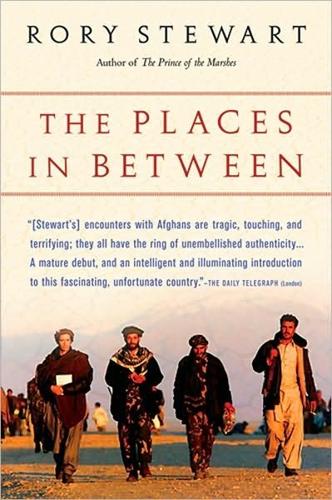
The Places in Between
by
Rory Stewart
Published 1 Jan 2004
CROWN JEWELS BREAD AND WATER THE FIGHTING MAN SHALL A NOTHING MAN Part Three HIGHLAND BUILDINGS THE MISSIONARY DANCE MIRRORED CAT'S-EYE SHADES MARRYING A MUSLIM WAR DOG COMMANDANT HAJI (MOALEM) MOHSIN KHAN OF KAMENJ COUSINS Part Four THE MINARET OF JAM TRACES IN THE GROUND BETWEEN JAM AND CHAGHCHARAN DAWN PRAYERS LITTLE LORD FROGS THE WINDY PLACE Part Five NAME NAVIGATION THE GREETING OF STRANGERS LEAVES ON THE CEILING FLAMES ZIA OF KATLISH THE SACRED GUEST THE CAVE OF ZARIN DEVOTIONS THE DEFILES OF THE VALLEY Part Six THE INTERMEDIATE STAGES OF DEATH WINGED FOOTPRINTS BLAIR AND THE KORAN SALT GROUND AND SPIKENARD PALE CIRCLES IN WALLS @afghangov.org WHILE THE NOTE LASTS Part Seven FOOTPRINTS ON THE CEILING I AM THE ZOOM KARAMAN KHALILI'S TROOPS AND I HAVE MINE THE SCHEME OF GENERATION THE SOURCE OF THE KABUL RIVER TALIBAN TOES MARBLE Epilogue Acknowledgments Footnotes A HARVEST ORIGINAL • HARCOURT, INC. Orlando Austin New York San Diego Toronto London Copyright © Rory Stewart 2004 Illustrations copyright © 2006 by Rory Stewart All rights reserved. No part of this publication may be reproduced or transmitted in any form or by any means, electronic or mechanical, including photocopy, recording, or any information storage and retrieval system, without permission in writing from the publisher.
…
The Places in Between Rory Stewart Table of Contents Title Page Table of Contents ... Copyright Dedication Contents Preface Epigraphs THE NEW CIVIL SERVICE TANKS INTO STICKS WHETHER ON THE SHORES OF ASIA Part One CHICAGO AND PARIS HUMA FARE FORWARD THESE BOOTS Part Two QASIM IMPERSONAL PRONOUN A TAJIK VILLAGE THE EMIR OF THE WEST CARAVANSERAI, WHOSE PORTALS... TO A BLIND MAN'S EYE GENEALOGIES LEST HE RETURNING CHIDE... CROWN JEWELS BREAD AND WATER THE FIGHTING MAN SHALL A NOTHING MAN Part Three HIGHLAND BUILDINGS THE MISSIONARY DANCE MIRRORED CAT'S-EYE SHADES MARRYING A MUSLIM WAR DOG COMMANDANT HAJI (MOALEM) MOHSIN KHAN OF KAMENJ COUSINS Part Four THE MINARET OF JAM TRACES IN THE GROUND BETWEEN JAM AND CHAGHCHARAN DAWN PRAYERS LITTLE LORD FROGS THE WINDY PLACE Part Five NAME NAVIGATION THE GREETING OF STRANGERS LEAVES ON THE CEILING FLAMES ZIA OF KATLISH THE SACRED GUEST THE CAVE OF ZARIN DEVOTIONS THE DEFILES OF THE VALLEY Part Six THE INTERMEDIATE STAGES OF DEATH WINGED FOOTPRINTS BLAIR AND THE KORAN SALT GROUND AND SPIKENARD PALE CIRCLES IN WALLS @afghangov.org WHILE THE NOTE LASTS Part Seven FOOTPRINTS ON THE CEILING I AM THE ZOOM KARAMAN KHALILI'S TROOPS AND I HAVE MINE THE SCHEME OF GENERATION THE SOURCE OF THE KABUL RIVER TALIBAN TOES MARBLE Epilogue Acknowledgments Footnotes A HARVEST ORIGINAL • HARCOURT, INC.
…
Requests for permission to make copies of any part of the work should be submitted online at www.harcourt.com/contact or mailed to the following address: Permissions Department, Harcourt, Inc., 6277 Sea Harbor Drive, Orlando, Florida 32887-6777. www.HarcourtBooks.com Maps by Susie Knowland, created from original maps by www.ml-design.co.uk First published in Great Britain by Picador in 2004 Library of Congress Cataloging-in-Publication Data Stewart, Rory. The places in between/Rory Stewart.—1st U.S. ed. p. cm. Originally published: London: Picador, 2004. "A Harvest Original." 1. Afghanistan—Description and travel. 2. Afghanistan—Social life and customs. 3. Stewart, Rory—Travel—Afghanistan. I. Title. DS352.S74 2006 915.8104'47—dc22 2005032213 ISBN-13: 978-0-15-603156-1 ISBN-10: 0-15-603156-6 Text set in Baskerville MT Designed by April Ward Printed in the United States of America First U.S. edition A C E G I K J H F D B This book is dedicated to the people of Iran, Afghanistan, Pakistan, India, and Nepal, who showed me the way, fed me, protected me, housed me, and made this walk possible.

The Marches: A Borderland Journey Between England and Scotland
by
Rory Stewart
Published 14 Jul 2016
Contents Cover About the Book About the Author Also by Rory Stewart Maps Dedication Title Page Book One: The Wall Book Two: Middleland Book Three: The General Danced at Dawn Chronology Acknowledgements Index Copyright About the Book His father Brian taught Rory Stewart how to walk, and walked with him on journeys from Iran to Malaysia. Now they have chosen to do their final walk together along ‘the Marches’ – the frontier that divides their two countries, Scotland and England. Brian, a ninety-year-old former colonial official and intelligence officer, arrives in Newcastle from Scotland dressed in tartan and carrying a draft of his new book You Know More Chinese Than You Think.
…
Epub ISBN: 9781448156245 Version 1.0 1 3 5 7 9 10 8 6 4 2 Jonathan Cape, an imprint of Vintage Publishing 20 Vauxhall Bridge Road, London SW1V 2SA Jonathan Cape is part of the Penguin Random House group of companies whose addresses can be found at global.penguinrandomhouse.com Copyright © Rory Stewart 2016 Rory Stewart has asserted his right to be identified as the author of this Work in accordance with the Copyright, Designs and Patents Act 1988 First published by Jonathan Cape in 2016 penguin.co.uk/vintage A CIP catalogue record for this book is available from the British Library ISBN 9780224097680
…
Their odyssey develops into a history of nationhood, an anatomy of the landscape, a chronicle of contemporary Britain and an exuberant encounter between a father and a son. And as the journey deepens, and the end approaches, Brian and Rory fight to match, step by step, modern voices, nationalisms and contemporary settlements to the natural beauty of the Marches, and a fierce absorption in tradition in their own unconventional lives. About the Author Rory Stewart was born in Hong Kong in 1973. After a brief period in the Army, he joined the Foreign Office, serving in Indonesia and the Balkans. His account of the last section of his 6,000 mile walk across Afghanistan is described in The Places In Between; and his time as a deputy-governor of two provinces in Southern Iraq in Occupational Hazards.

Arabian Sands
by
Wilfred Thesiger
Published 15 Sep 1959
Wilfred Thesiger’s other books include Desert, Marsh and Mountain: The World of a Nomad, his autobiography, The Life of My Choice, and Visions of a Nomad. An accomplished photographer, he donated his extensive collection of negatives to the Pitt Rivers Museum in Oxford. Wilfred Thesiger died in 2003. RORY STEWART was born in Hong Kong and educated at Eton and Oxford. He served briefly as an infantry Officer in the Black Watch before joining the Foreign Office and serving in Indonesia and then as British Representative in Montenegro. Between 2000 and 2002 he walked 6,000 miles across Iran, Pakistan, India and Nepal and Afghanistan.
…
In 2003 he was appointed as the Coalition Deputy Governor of Maysan and Dhi Qar in the Marsh regions of southern Iraq. He is the author of The Places in Between and Occupational Hazards. He now lives in Kabul where he runs the Turquoise Mountain Foundation. He was awarded the OBE in 2004. WILFRED THESIGER Arabian Sands With an introduction by RORY STEWART PENGUIN BOOKS PENGUIN CLASSICS Published by the Penguin Group Penguin Books Ltd, 80 Strand, London WC2R 0RL, England Penguin Group (USA) Inc., 375 Hudson Street, New York, New York 10014, USA Penguin Group (Canada), 90 Eglinton Avenue East, Suite 700, Toronto, Ontario, Canada M4P 2Y3 (a division of Pearson Penguin Canada Inc.)
…
Penguin Ireland, 25 St Stephen’s Green, Dublin 2, Ireland (a division of Penguin Books Ltd) Penguin Group (Australia), 250 Camberwell Road, Camberwell, Victoria 3124, Australia (a division of Pearson Australia Group Pty Ltd) Penguin Books India Pvt Ltd, 11 Community Centre, Panchsheel Park, New Delhi – 110 017, India Penguin Group (NZ), 67 Apollo Drive, Rosedale, North Shore 0632, New Zealand (a division of Pearson New Zealand Ltd) Penguin Books (South Africa) (Pty) Ltd, 24 Sturdee Avenue, Rosebank, Johannesburg 2196, South Africa Penguin Books Ltd, Registered Offices: 80 Strand, London WC2R 0RL, England www.penguin.com First published in Great Britain by Longmans, Green 1959 First published in the United States of America by E. P. Dutton 1959 Published in Penguin Books 1964; reprinted with a new preface 1984; reprinted with a second preface 1991 Published with a new introduction in Penguin Classics 2007 1 Copyright © The Estate of Wilfred Thesiger, 1959, 1984, 1991 Introduction copyright © Rory Stewart, 2007 All rights reserved The publishers are indebted to Messrs J. M. Dent & Sons Ltd for permission to quote a prayer from the Rodwell translation of The Koran in the Everyman Library edition. The moral right of the authors has been asserted Except in the United States of America, this book is sold subject to the condition that it shall not, by way of trade or otherwise, be lent, re-sold, hired out, or otherwise circulated without the publisher’s prior consent in any form of binding or cover other than that in which it is published and without a similar condition including this condition being imposed on the subsequent purchaser EISBN: 978–0–141–90442–9 Contents Introduction by Rory Stewart List of Maps Preface Preface to the 1991 Reprint Foreword Prologue 1 Abyssinia and the Sudan 2 Prelude in Dhaufar 3 The Sands of Ghanim 4 Secret Preparations at Salala 5 The Approach to the Empty Quarter 6 On the Edge of the Empty Quarter 7 The First Crossing of the Empty Quarter 8 Return to Salala 9 From Salala to Mukalla 10 Preparations for a Second Crossing 11 The Second Crossing of the Empty Quarter 12 From Sulaiyil to Abu Dhabi 13 The Trucial Coast 14 A Holiday in Buraimi 15 The Quicksands of Umm al Samim 16 The Wahiba Sands 17 The Closing Door Arabic and Botanical Names of Plants Mentioned in the Book A List of the Chief Characters on the Various Journeys Index Introduction ‘Sir Wilfred, how did it feel when you first killed a man?’
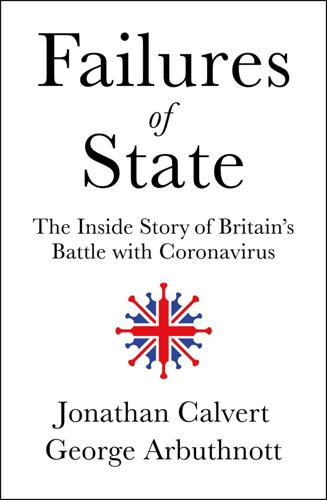
Failures of State: The Inside Story of Britain's Battle With Coronavirus
by
Jonathan Calvert
and
George Arbuthnott
Published 18 Mar 2021
In September 2019 he expelled 21 members of parliament who had voted against their own government to prevent a no-deal Brexit. These included the former chancellors Ken Clarke and Philip Hammond, ex-cabinet minister Sir Oliver Letwin, former education secretary Justine Greening, the ex-attorney general Dominic Grieve, and Rory Stewart, who had previously been the international development secretary. The party had been streamlined for one purpose: delivering Brexit. However, once the election had been won with a thumping 80-seat majority and Brexit had been delivered, the process of reshaping the government’s top team continued along the same lines as Johnson sought to cement his position.
…
The minutes of its meeting the next day state specifically: ‘Difficulty maintaining behaviours … should not be taken as a reason to delay implementation where that is indicated epidemiologically.’ It seemed like a rebuke for the chief medical officer. The mixture of small steps forward and delay was causing exasperation. It was articulated that day by ex-minister Rory Stewart, who had been a Tory leadership contender against Johnson five months earlier. ‘The prime minister’s job is to choose the strategy and I believe it is patently clear from all the way around the world that we need to act today, today, today, today,’ said Stewart. He had some experience of viruses after travelling to the Democratic Republic of Congo in 2019 when he was the minister responsible for Ebola.
…
The government has been trying to deal with this pandemic in a grossly inefficient manner,’ he said. ‘Now we’ve got the worst of all possible worlds. It is not just thousands of people who have died unnecessarily, it’s tens of thousands. It has also caused an unprecedented hit on the economy.’ Rory Stewart, the former international development secretary and Conservative Party leadership contender, argues there was a smugness and arrogance about his own government’s approach to the virus. He said there was a ‘cultural problem’ with the belief that ‘Britain was the best country in the world at public health response and that we didn’t really have anything to learn from other people’.

The 9/11 Wars
by
Jason Burke
Published 1 Sep 2011
The mixture of jaded pragmatism, can-do naivety and starry-eyed ideology was striking. ‘The CPA is having to invent this day by day,’ said Mark Kennon, the authority’s coordinator for Salahuddin province. Contacts with the local population were limited. When people did travel they ended up ‘looking at Iraq through armoured glass surrounded by guns,’ in the words of Rory Stewart, deputy governer in Maysan province and then in Nasariyah.51 In the provinces, moving three CPA engineers involved a convoy of seven Humvees, two with .50 calibre machine guns and seven squad-level weapons. The atmosphere was rendered even more surreal by two enormous disconnects: between official language and reality ‘beyond the wire’ and between what was expected of the CPA and what it could deliver.
…
Philip Smucker, Al Qaeda’s Great Escape, Potomac Books, 2004. Devin Springer, James Regens, David Edger, Islamic Radicalism and Global Jihad, Georgetown University Press, 2008. Jean-Marc Stébé, La Crise des banlieues, PUF, 2007. Jessica Stern, Terror in the Name of God, Harper Perennial, 2004. Rory Stewart, Occupational Hazards: My Time Governing in Iraq, Picador, 2007. The Places in Between, Picador, 2005. Hilary Synnott, Bad Days in Basra, I. B. Tauris, 2008. See Seng Tan, Kumar Ramakrishna, eds., After Bali: The Threat of Terrorism in Southeast Asia, Institute of Defence and Strategic Studies, Singapore, 2003.
…
Author interviews in Bamiyan, March 2002, Kabul 2009. Human Rights Watch, ‘Afghanistan: Ethnically-Motivated Abuses Against Civilians’, Human Rights Watch Backgrounder, October 2001. Human Rights Watch Annual Report, Massacres of Hazaras in Afghanistan, February 1, 2001. Interviews with United Nations specialist, Kabul, 2009. See also Rory Stewart, The Places in Between, Picador, 2005, pp. 247, 263, 299 and 302. Author interview with Stewart, Kabul, March 2009. Stewart also gives a colourful account of the shifting allegiances of various commanders. Ahmed Rashid, Descent into Chaos, Allen Lane, 2008, p. 299. 18. Author interviews with senior former Taliban ministers, Kabul, March, 2009. 19.

Routes to Rejoin
by
Stay European
Published 3 Oct 2021
While this was not an overnight process, the watershed moment came when Boris Johnson withdrew the whip from 21 Tory MPs who refused to back his Brexit deal. They included Ken Clarke, who was the best-known pro-EU Tory, recent ex-chancellor Philip Hammond, Dominic Grieve, David Gauke, Justine Greening and Rory Stewart. Most infamously, Johnson even suspended Nicholas Soames, grandson of his supposed role model Churchill. While some had the whip restored after an outcry, vocal support for Johnson’s Brexit deal was then made a precondition of being allowed to stand as a Conservative in the 2019 general election.
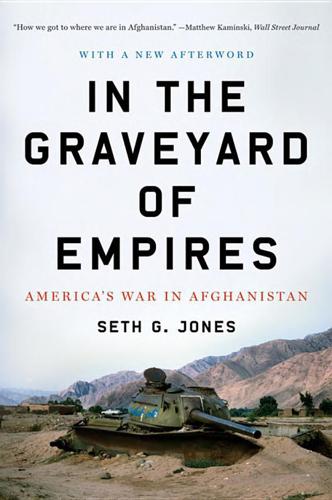
In the Graveyard of Empires: America's War in Afghanistan
by
Seth G. Jones
Published 12 Apr 2009
“Because of him, I made up my mind in the tenth grade to go into the Foreign Service.”11 It was Ronald Neumann’s first trip to Afghanistan, and the last he would take before following in his father’s footsteps as U.S. ambassador to Afghanistan nearly four decades later. With his wife, Neumann traveled the country. They drove from Herat to Kabul, along part of the same route that Rory Stewart would later memorialize in his 2001 best seller The Places in Between.12 Neumann went on a hunting expedition for the famous Marco Polo sheep in Badakhshan, Afghanistan’s mountainous northeast in the heart of the Hindu Kush. After returning from his trek across the region in the late thirteenth century, the Italian explorer had described these 300-pound beasts as “wild sheep of enormous size” with horns “as much as six palms in length.”13 “It was an exotic adventure, a throwback in time,” said Neumann.14 He also drove through the Salang Tunnel, linking northern and southern Afghanistan through the Hindu Kush mountains.
…
Sir George Lawrence, Reminiscences of Forty-Three Years in India (Lahore, Pakistan: Sang-e-Meel Publications, 1981), pp. 308–9. The appendix includes a copy of William Brydon’s account, provided on arrival in Jalalabad in 1842. 9. Holt, Into the Land of Bones, p. 4. 10. Holt, Into the Land of Bones, pp. 4–5. 11. Author interview with Ambassador Ronald Neumann, April 16, 2008. 12. Rory Stewart, The Places in Between (Orlando, FL: Harcourt, 2006). 13. Marco Polo, Travels of Marco Polo, p. 80. 14. Author interview with Ambassador Ronald Neumann, March 25, 2008. 15. Henry Kissinger, Memorandum for the President, “Private Conversations with the King and Prime Minister of Afghanistan,” January 26, 1970.
…
Gates, Subject: COMISAF’s Initial Assessment, Reference: Secretary of Defense Memorandum 26 June 2009, August 30, 2009, p. 1-1. 4. Steven Simon, “Can the Right War Be Won? Defining American Interests in Afghanistan,” Foreign Affairs, vol. 88, no. 4, July/August 2009, p. 134. Also see, for example, Rory Stewart, “How to Save Afghanistan,” Time, July 17, 2008. 5. Steven Simon and Jonathan Stevenson, “Afghanistan: How Much is Enough?” Survival, vol. 51, no. 5, October–November 2009, pp. 47–68. 6. John J. Mearsheimer, “Hollow Victory,” Foreign Policy, November 2, 2009. 7. Letter from Matthew Hoh to Ambassador Nancy J.
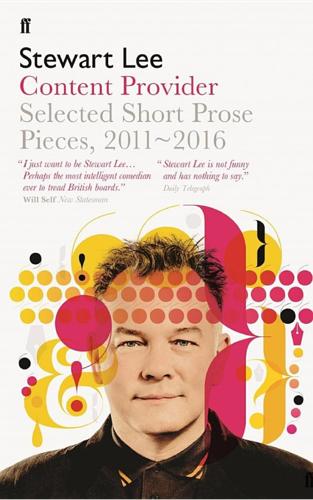
Content Provider: Selected Short Prose Pieces, 2011–2016
by
Stewart Lee
Published 1 Aug 2016
How brilliantly and thrillingly offensive would it be for today’s teens to parade around in T-shirts bearing the smiling face of Gary Barlow OBE? * * * “Who the hell is Dennis Roussos?!? DEMIS ffs!!” Lockie Baws The search for the nation’s identity: my part in Cameron’s odyssey Observer, 15 June 2014 Some background. Birmingham schools were suspected of promoting Islamism, and a debate on British values ensued; Rory Stewart, the acceptable face of the Conservative Party, did genuinely ask me to join a human chain of friendship across the Scottish border, but I suspected this might make things worse; my friend, the comedian, and former Balamory actor, Miles Jupp, is the only person I know who has been immortalised as a wash mitt; and I was once asked onto a Radio 4 discussion about blasphemy with the Muslim Council of Britain’s Inayat Bunglawala, after Muslims had issued death threats to Danish cartoonists.
…
The token could not, however, be exchanged for sparkling water or continental beers, which were to be paid for at a till linked directly to an account in Luxembourg, as part of an arrangement organised by the chancellor. It was not the first time I had been invited to help shore up British national interests. Earlier this year, the famous adventurer Rory Stewart had asked me to be part of a continuous “Auld Lang Syne” of E-list celebrities, their arms linked along the border in a gesture of Anglo–Scots solidarity. I was to take my place on Adrian’s Wall, joining hands with the Scottish folk singer Dick Gaughan and a life-size wash mitt of Archie, the Laird of Balamory.
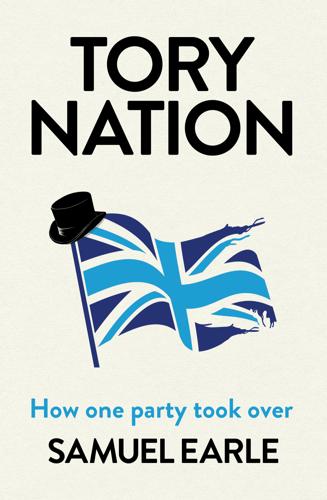
Tory Nation: The Dark Legacy of the World's Most Successful Political Party
by
Samuel Earle
Published 3 May 2023
In his first few months alone, he prorogued parliament, kicked out twenty-one Conservative MPs who opposed his Brexit strategy, attacked the courts and was accused of lying to the Queen.14 Some Tories said that they could no longer support a party that behaved so recklessly. ‘I’m still not sure whether I left the Conservative Party, or whether it left me,’ Rory Stewart lamented in October, announcing his departure.15 ‘The Tory party has crossed their Rubicon,’ Matthew Parris mourned in The Times on 1 November, announcing that, after fifty years of loyalty, he would now vote for the Lib Dems. But after a decade of disruption and destruction, such crises of conscience among Conservatives were hard to understand.
…
See also George Parker, ‘How David Cameron lost his battle for Britain’, Financial Times, 18 December 2016. 9 Alex Morales, ‘U.K.’s Osborne to Reap $790,000 From 48 Days’ Work for BlackRock’, Bloomberg, 8 March 2017. 10 ‘British Army ‘could stage mutiny under Corbyn’, says senior serving general’, Independent, 20 September 2015. 11 ‘Corbyn hits back at Blair after former PM’s call to put party allegiances aside’, Guardian, 23 April 2017. 12 Aaron Bastani, “It’s going to be a long night’ – How Members of Labour’s Senior Management Team Campaigned to Lose’, Novara Media, 12 April 2020. 13 Charles Graves, Leather Armchairs: The Book of London Clubs, Coward-McCann, 1963, p. 64. See also Davies, We, the Nation. 14 ‘Johnson denies lying to Queen over Parliament suspension’, BBC, 12 September 2019. 15 Rory Stewart, ‘I hope I got out of the Tory party before it was too late’, Observer, 6 October 2019. 16 Oliver Heath and Matthew Goodwin, ‘For the first time, more people on low incomes voted for the Conservative Party than for Labour’, Joseph Rowntree Foundation, 24 June 2020. 17 Daniel Finn, ‘How Brexit Broke the British Left’, Catalyst Journal, vol. 5, no. 3, 2021. 18 See Samuel Earle, ‘Can Jeremy Corbyn Save Britain from Brexit?’
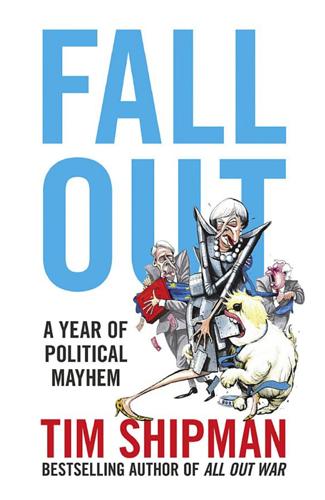
Fall Out: A Year of Political Mayhem
by
Tim Shipman
Published 30 Nov 2017
While the chancellor scrambled to write his letter to MPs, Katie Perrior and Tom Swarbrick had a sensitive situation to manage. A dramatic U-turn was pending but Rory Stewart, the international development minister, was shortly due to appear on the BBC’s Daily Politics show. ‘We’re going to have to speed this up,’ Perrior said, ‘because I’m not leaving a minister hanging out to dry.’ Perrior called Rob Oxley, the DfID spad who was with Stewart, and said, ‘We’re doing a U-turn on National Insurance contributions. There’s a letter in Rory Stewart’s private email.’ Oxley got Stewart to call Perrior, who gave the minister three points to make on air. Perrior was aghast when Stewart went on air and repeated the talking points he had learned the night before as if nothing had changed.
…
He explained afterwards, ‘I’d really learnt those lines yesterday and I just didn’t feel that I could peel away from them.’ Ten minutes later the policy was binned. When, months later, Stewart began positioning himself as a future leadership contender, a senior government source said, ‘I’d be seriously worried if Rory Stewart went anywhere near the job. He was incapable of delivering three lines.’ Hammond was grateful for the support of the Number 10 press team and called May to thank her. The prime minister called Perrior on her mobile and said, ‘I wanted to let you know the chancellor personally wanted to thank you and your team for all the hard work.’
…
Brady was circling the wagons again. ‘We said that she had our support in ensuring that the cabinet behave with the necessary discipline,’ an MP present said. As for the future leadership sweepstakes, the call went up to ‘skip a generation’. Ministers like Sajid Javid, Justine Greening, Dominic Raab and Rory Stewart, and rising backbench stars Tom Tugendhat, Johnny Mercer and James Cleverly, all began to be talked about as possible candidates. Over the summer, online campaigners were even to advance the prospects of professional eccentric Jacob Rees-Mogg under the banner of ‘Moggmentum’. It was in all their interests for May to survive another two years.

A Bit of a Stretch: The Diaries of a Prisoner
by
Chris Atkins
Published 6 Feb 2020
Liddington departed after a few months, having made no discernible impact, and was replaced by David Gauke.5 To be fair to Gauke, and his eccentric prisons minister Rory Stewart, they both proposed more progressive measures than any of their recent predecessors.6 They suggested scrapping sentences of under 12 months7 and slightly humanised the IEP system to get rid of Entry level.8 This didn’t stop the crisis intensifying throughout 2018. HMP Liverpool hit the headlines for having the ‘worst conditions inspectors have seen’. Peter Clarke, the head prison inspector, apportioned much of the blame to the national leadership of the prison system.9 Rory Stewart subsequently declared that he’d resign as prisons minister if the 10 most failing jails did not improve in the next year.10 He didn’t wait to face the music, and instead provided the comic relief during the 2019 Tory leadership election.
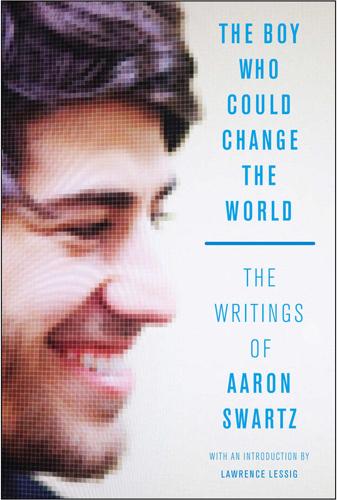
The Boy Who Could Change the World: The Writings of Aaron Swartz
by
Aaron Swartz
and
Lawrence Lessig
Published 5 Jan 2016
, but, even more interestingly, recounts a great deal of fascinating personal experience about what it was like working with McNamara and Kissinger and trying to maintain your sanity in the highest levels of government. . . . Prince of the Marshes by Rory Stewart I occasionally have this fantasy, while reading the news, that whatever person I’m reading about has been fired and, through some miraculous fluke, I have been given their job. Would I make a hash of it? Or, would my naive mind and outsider’s expertise allow me to do it in a fascinating new way? In this book, Rory Stewart describes what happened when he was made a colonial governor of a province in Iraq. Brilliant fellow that he is, he does a remarkably good job all things considered, but also writes a questioning, soul-searching, fascinating book about the experience that highlights what an impossible task it really is.
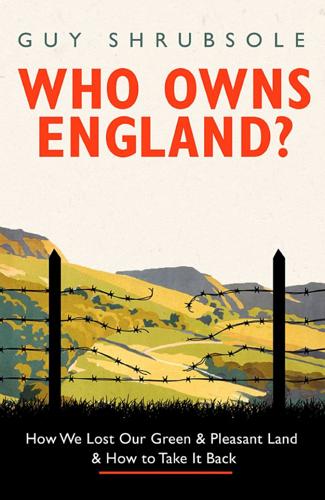
Who Owns England?: How We Lost Our Green and Pleasant Land, and How to Take It Back
by
Guy Shrubsole
Published 1 May 2019
Of course, allowing the Lakes to rewild would change the character of a landscape that many have grown used to and cherish. Plenty of self-proclaimed conservationists want to conserve the Lake District for its aesthetic beauty, farming traditions and cultural landscape, rather than for the species it supports. ‘People ask me why I’m against rewilding,’ contends Rory Stewart, the MP for a large part of the Lakes, ‘and the answer is because of the human in the landscape … these are the hills across which Coleridge walked from Keswick to have dinner with Wordsworth.’ Following this approach, conservation resembles pickling a landscape in formaldehyde to preserve human heritage, not nature.
…
Thoughts on the Lake District’, A New Nature Blog, 22 May 2017, https://anewnatureblog.wordpress.com/2017/05/22/sheepwrecked-or-a-world-heritage-site-thoughts-on-the-lake-district/ Come to the Fake EarthFirst!, Do or Die: Voices from the Ecological Resistance 10 (2003), p. 61. degenerated into George Monbiot, ‘The Lake District as a world heritage site? What a disaster that would be’, Guardian, 9 May 2017. People ask me Rory Stewart MP, video posted on Twitter ahead of a debate with authors George Monbiot and Mark Cocker, 9 July 2018, https://twitter.com/rorystewartuk/status/1016286082890166272?s=11 James Rebanks’ bestseller James Rebanks, The Shepherd’s Life (Penguin, 2016). cultural landscape See the Lake District National Park Partnership’s Nomination Dossier for World Heritage Site status (2016): http://www.lakedistrict.gov.uk/__data/assets/pdf_file/0005/729671/1.0-Exec-Summary-and-Identification-of-the-Property.pdf one of England’s best Professor Alasdair Driver, post on Twitter, 5 July 2017, https://twitter.com/AliDriverUK/status/1014904126336008195 reforest parts of Thorneythwaite See https://www.nationaltrust.org.uk/borrowdale-and-derwent-water/features/thorneythwaite-borrowdale-in-the-lake-district.
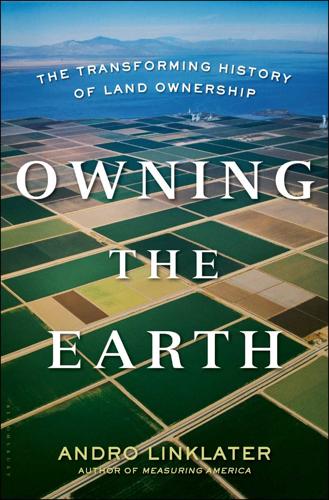
Owning the Earth: The Transforming History of Land Ownership
by
Andro Linklater
Published 12 Nov 2013
Their lands were held communally, but allocated to villages and families who paid in rent, services, and obedience to the emir’s justice. A century later, in the 1950s, 70 percent of Iraq’s territory was still owned in large estates of more than 10,000 donums, or 6,250 acres, divided between ciftliks and tribal leaders. As late as 2003, after the invasion of Iraq, when a young British official, Rory Stewart, was appointed to be the civilian governor of a province near Basra in southern Iraq, he found that in the countryside outside the cities the government was still provided by two tribes, Aibu Muhammad and Beni Lam. His Sunni interpreter from Baghdad referred to them contemptuously as “uneducated people, tribal people, without reading and writing,” but Saddam Hussein had not been able to tame them, and no one else was capable of maintaining order.
…
the Ottoman Land Code: The Tanzimat reforms produced a web of land ownership rules that were increasingly localized, although for tax purposes they gave an impression of regularity. percent of Iraq’s territory: For Iraq distribution of land, see Warriner, Land Reform, ch. 4, “Revolutions in Iraq,” 77. “uneducated people, tribal people”: Rory Stewart, Occupational Hazards: My Time governing in Iraq (London: Picador, 2006); “uneducated people,” 31. lively debate in Islam: Islamic responses to landed property are examined in “A Disputed Utopia: Islamic Economics in Revolutionary Iran” by Sohrab Behdad. Comparative Studies in Society and History 36, no. 4 (Oct. 1994), 775–813; “unbridled capitalism,” 807.
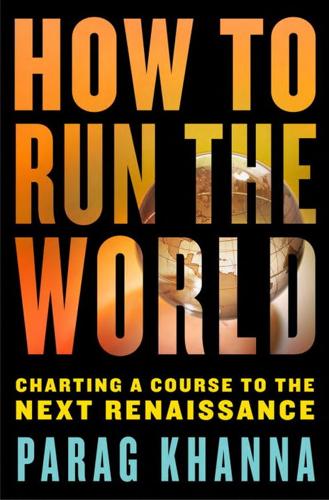
How to Run the World: Charting a Course to the Next Renaissance
by
Parag Khanna
Published 11 Jan 2011
On the issue of conflict management, particularly related to Afghanistan, I am grateful for the insights of Stan McChrystal, Carne Ross, Paul van Zyl, Rick Ponzio, Barney Rubin, Ellen Laipson, Clare Lockhart, Seema Patel, Joshua Gardner, Chris Hanson, Mary Ann Callahan, John Schweiger, Michelle Parker, Chris Eaton, Brian Fawcett, Christine Fair, Anja de Beer, Hamish Nixon, Paula Kantor, Meloney Lindberg, Joanna Nathan, Tilly Reed, Rory Stewart, Masuda Sultan, Humayun Hamidzada, Saad Mohseni, Aaron Tallaferino, Ashok Parameswaran, Cathy Silverstein, Espen Eide, Robert Kaplan, Carter Page, Jonathan Paris, Greg Mortenson, Christiane Leitinger, Paula Newberg, Verena Ringler, Srilal Pereira, David Hoffman, Ramesh Thakur, Melissa Payson, Mosharraf Zaidi, and Matthew Arnold.
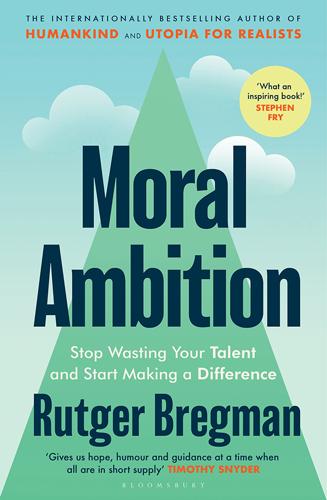
Moral Ambition: Stop Wasting Your Talent and Start Making a Difference
by
Bregman, Rutger
Published 9 Mar 2025
Bregman avoids easy moralising and lazy conventional wisdom to offer a fresh and practical guide to idealism’ Steven Pinker, Professor of Psychology, Harvard University, and author of Enlightenment Now ‘Clear, brave, important and provocative. Forcing us to reassess and defend the most fundamental moral principles and purposes of our lives’ Rory Stewart, bestselling author of Politics On the Edge ‘This book is the wakeup call that our world sorely needs. With his signature clarity and conviction, Rutger Bregman boldly and brilliantly challenges us to hold ourselves to higher standards – and do more for others. Moral Ambition is the rare read that might actually help you become a better person’ Adam Grant, bestselling author of Think Again ‘Rutger Bregman challenges the reader to use their lives to improve the world.
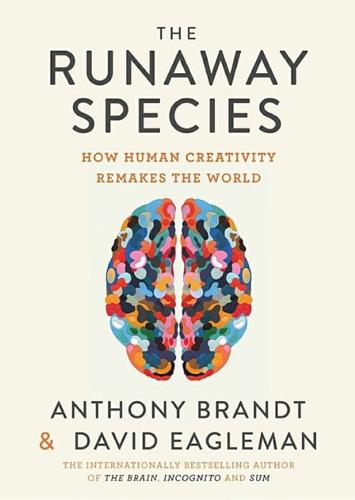
The Runaway Species: How Human Creativity Remakes the World
by
David Eagleman
and
Anthony Brandt
Published 30 Sep 2017
.; Dr John Lienhard of the University of Houston; author Victor McElheny; Liz Kurtulik Mercuri of Art Resource; composer Ben Morris; Andrea Morrison of Writers House, LLC; Mike Mueller for the estate of Norman Rockwell; Yasufumi Nakamori, Shelby Rodriguez, Marty Stein and Cindi Strauss of the Museum of Fine Arts Houston; Cris Piquela of Curtis Publishing; Brigid Pierce of the Martha Graham Company; Rebecca Rigney of Arthur Roger Gallery; Rory Stewart for Mercedes-Benz; Holly Taylor of Bridgeman Images; Eva Thaddeus of Project Glad; and Edward Zimmerman of Sony Pictures Television. We would like to thank colleagues at Rice University for sharing their expertise with us: Mary DuMont Brower, Diane Butler and Virginia Martin (Fondren Library); Karen Capo and Margaret Immel (School Literacy and Culture Project); Robert Curl (Chemistry), Michael Deem (Bioengineering); Charles Dove (Visual and Dramatic Arts); Suzanne Kemmer (Linguistics); Veronica Leautaud (Rice 360 Institute for Global Health); Joseph Manca (Art History); Linda Spadden McNeil (Rice University Center for Education); Cyrus Mody (History); Carolyn Nichol (Chemistry); Maria Oden and Matthew Wettergreen (Oshman Engineering Design Kitchen); Rebecca Richards-Kortum (Bioengineering); and Sarah Whiting (Dean of the School of Architecture).
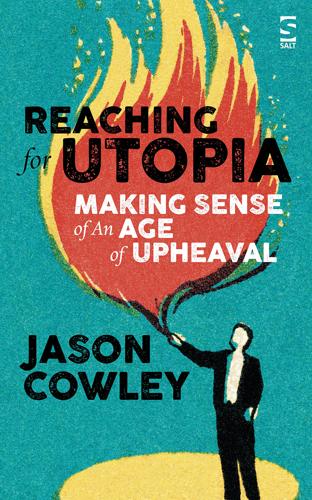
Reaching for Utopia: Making Sense of an Age of Upheaval
by
Jason Cowley
Published 15 Nov 2018
James Wood, now a literary critic and Harvard professor, remembers Cameron as being ‘confident, entitled, gracious, secure . . . exactly the kind of “natural Etonian” I was not’. He remarks on Cameron’s ‘charm and decency [at Eton] – almost a kind of sweetness, actually’, though he says Cameron showed little interest in politics. (Rory Stewart, the writer-traveller, Conservative MP and another Etonian, once told me that he thought Cameron and Boris Johnson were the ‘wrong kind of Etonians’, which leads one to assume that there must be a right kind, of whom Stewart is presumably one.) Eton: a word of just four letters but with a multiplicity of associations.

All Day Long: A Portrait of Britain at Work
by
Joanna Biggs
Published 8 Apr 2015
The high number of suicides versus deaths in battle was uncovered by the BBC’s Panorama team in July 2013; the University of Manchester’s Centre for Suicide Prevention found in March 2009 that ex-servicemen are three times more likely to take their own lives, which was published in the Public Library of Science Medicine by a team led by Professor Nav Kapur. Crisis’s ‘Homelessness Briefing’ of July 2013 says that 10 per cent of rough sleepers in London have been in the armed forces; the Royal British Legion’s submission of April 2014 to the Review of Veterans within the Criminal Justice System headed by Rory Stewart puts the rate of alcohol abuse among ex-servicemen at 13 per cent (versus 6 per cent in the general population). The Sassoon quote is from ‘Survivors’, written at Craiglockhart in October 1917 and the account of Charles Myers’s work from his article ‘Contributions to the Study of Shell Shock, Being an Account of Certain Disorders of Cutaneous Sensibility’ in the Lancet of 18 March 1916.
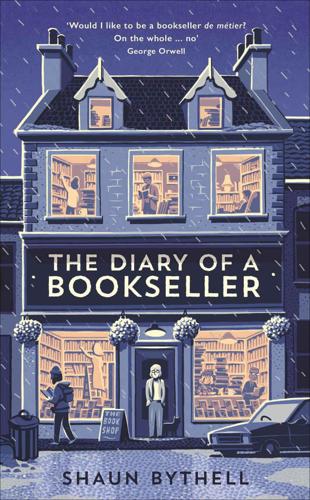
The Diary of a Bookseller
by
Shaun Bythell
Published 27 Sep 2017
Indeed, the actor James Robertson Justice – a one-time resident of the town – so loved the place that on a number of occasions he falsely claimed it as his birthplace. Till total £301 14 customers FRIDAY, 4 APRIL Online orders: 3 Books found: 1 Three orders, all Amazon; only found one. One of the missing books was Rory Stewart’s The Places in Between, which Nicky had listed as being on shelf Q6 in the Scottish room, despite its being a book about Afghanistan, written by a man who was born in Hong Kong. Perhaps the Scottish-sounding name confused her. As I was taking the sacks of mail over to Wilma, I bumped into Jock, who used to work in the shop when John Carter owned it.
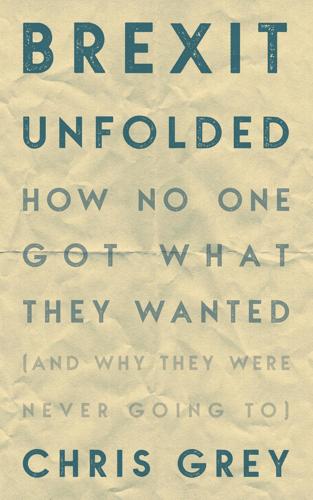
Brexit Unfolded: How No One Got What They Want (And Why They Were Never Going To)
by
Chris Grey
Published 22 Jun 2021
Those elected proceeded to drag the country’s reputation further into the mire with childishly insulting stunts in the European Parliament that many British people found embarrassing and shameful. The Tory leadership election As for the Tory leadership contest, even had the candidates not been minded to do so, it involved pandering to a small and generally elderly party membership which was now virulently pro-Brexit. So with the honourable exception of one of the candidates, Rory Stewart, it became a bidding war to take the most extreme positions. It was a sign of just how polarised the Brexit debate had become in the previous three years that Stewart – who in the leadership contest embraced leaving the single market and customs union – was described as an ‘ultra-remainer’. What might, conceivably, have been a fresh chance to sensibly debate the realities of Brexit was squandered and, instead, all the old saws about GATT Article XXIV and ‘alternative arrangements’ for the Irish border were out in force.
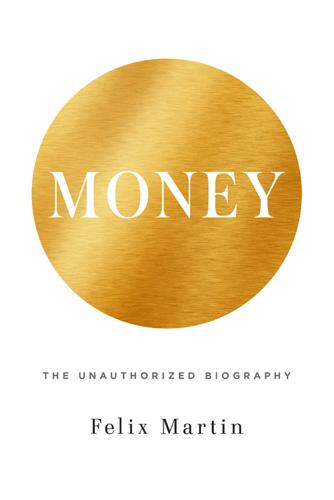
Money: The Unauthorized Biography
by
Felix Martin
Published 5 Jun 2013
My sincere thanks to Olga Bogomazova and to the Centre for so generously providing the ideal environment in which to work. I owe special thanks to two people—Ha-Joon Chang and Robert Skidelsky—who encouraged me actually to write this book rather than just to talk about writing it. Likewise, Will Goodlad, Joy de Menil, Philip Delves Broughton, Nicole Aragi, Tim Moore, Barnaby Martin, Joanna Kavenna, Anna Webber, Rory Stewart, and Aleksandar Hemon all provided masterful and greatly appreciated practical advice and encouragement. As for my agent, Natasha Fairweather, she is simply in a class of her own. I cannot thank her and the rest of the team at A. P. Watt—Linda Shaughnessy, Lucy Smith, and Donald Winchester—enough.
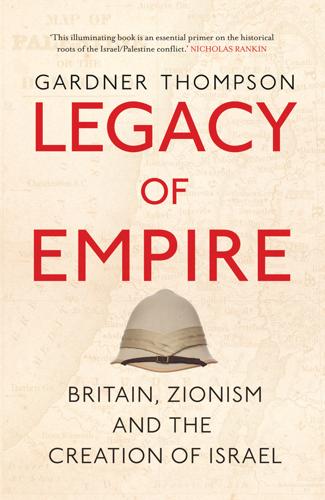
Legacy of Empire
by
Gardner Thompson
Foremost among others who read parts of even earlier, introductory, text, providing formative feedback at a crucial time are Tom Farrell, Celia Randall, Adam Rothwell, David Smart, Daniel Wolf and Charles Wrangham. Later, Kenneth Wolfe kindly reviewed Chapters 1 and 2. The commitment of Peter Rogers to this project in its early stages was generous and is appreciated. For encouragement, timely advice and guidance I thank Carne Ross, Karl Sabbagh, Rory Stewart, Norman Stone and Bernard Wasserstein. Not least, I would like to acknowledge my debt to family members, along with innumerable friends and acquaintances, who convinced me that there remains among the general, non-specialist, reading public not only ignorance of the background to this controversial and still contemporary topic but also a considerable appetite for learning about it.

Posh Boys: How English Public Schools Ruin Britain
by
Robert Verkaik
Published 14 Apr 2018
and members swore an oath of secrecy to the effect that ‘what happens in the Beefsteak stays in the Beefsteak.’ A similar aura of secrecy surrounds the club today. According to Who’s Who, among its members are the disgraced former MP Brooks Newmark (also a member of White’s; Bedford School) and the Tory minister Rory Stewart (Eton). Boris Johnson’s father, Stanley Johnson (Sherborne), was a member and blocked Michael Gove from joining after Gove stabbed his son in the back during the Tory leadership race. An online version of Who’s Who dated 1 December 2017 tells us that William Shawcross, the chair of the Charity Commission since 2012, was once a member.
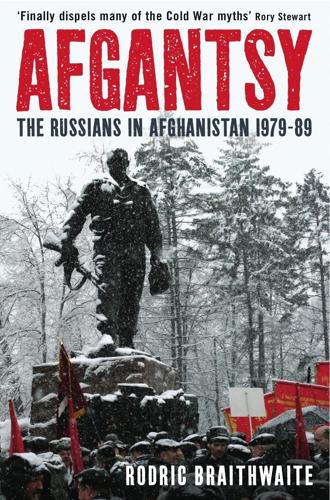
Afgantsy: The Russians in Afghanistan, 1979-89
by
Rodric Braithwaite
Published 15 Jan 2011
Artemy Kalinovsky’s doctoral thesis, ‘A Long Goodbye: The Politics and Diplomacy of the Soviet Withdrawal from Afghanistan, 1980–1992’, is a most distinguished and elegant work of scholarship, which is now being published by Harvard Press as a book. He and I both read Raymond Chandler, and agreed that neither could claim a monopoly of the title. Masha Slonim, Valeri and Galina Ivanov, Valeri Shiryaev, Vladimir Snegirev, Dmitri Ryurikov, and Alexander Gergel corrected passages relating to them. Rory Stewart generously let me stay in his room in the Turquoise Mountain Foundation during my brief visit to Afghanistan in September 2008. I owe much thanks to him and his colleagues for enabling me to get an indispensable feeling for a remarkable country – especially Hedvig Alexander and Manja Burton, and to Aziz and Zia, who drove me up the Salang Pass and into the Pandsher Valley, where Aziz showed me his home and introduced me to his wife and family.

Rentier Capitalism: Who Owns the Economy, and Who Pays for It?
by
Brett Christophers
Published 17 Nov 2020
Furthermore, when the Ministry of Justice announced in the same year (and around the same time as Hutton’s ‘death knell’ announcement) that Birmingham prison was being returned to public-sector control only halfway through a disastrous G4S contract, it was notable – but little remarked – that the prisons minister, Rory Stewart, made a point of emphasizing that this was explicitly not the end of the government’s strategy of outsourcing prison management. ‘We need to be absolutely clear’, Stewart stated, ‘that we still believe in a mixed economy of providers with some of our private prisons among the best performing in the country.
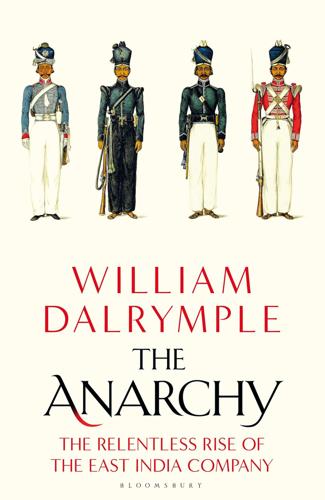
The Anarchy: The Relentless Rise of the East India Company
by
William Dalrymple
Published 9 Sep 2019
In the US: Muzaffar Alam, Maya Jasanoff, Ayesha Jalal, Ben Hopkins, Nile Green, Sanjay Subramanyam, Durba Ghosh, Elbrun Kimmelman and Navina Haidar. In Britain: Nick Robbins, Saqib Baburi, Ursula Sims-Williams, Jon Wilson, Malini Roy, Jerry Losty, John Falconer, Andrew Topsfield, Linda Colley, David Cannadine, Susan Stronge, Amin Jaffer, Anita Anand, Ian Trueger, Robert Macfarlane, Michael Axworthy, David Gilmour, Rory Stewart, Charles Allen, John Keay, Tommy Wide, Monisha Rajesh, Aarathi Prasad, Farrukh Husain, Charles Grieg, Rosie Llewellyn-Jones, Richard Blurton, Anne Buddle, Sam Murphy, Henry Noltie, Robert Skelton, Francesca Galloway, Sam Miller, Shireen Vakil, Zareer Masani, Tirthankar Roy, Brigid Waddams, Barnaby and Rose Rogerson, Anthony and Sylvie Sattin, Hew, Jock and Rob Dalrymple and the late, and much missed, Chris Bayly whose Cambridge lectures more than thirty years ago first got me interested in the complexities of eighteenth-century India.